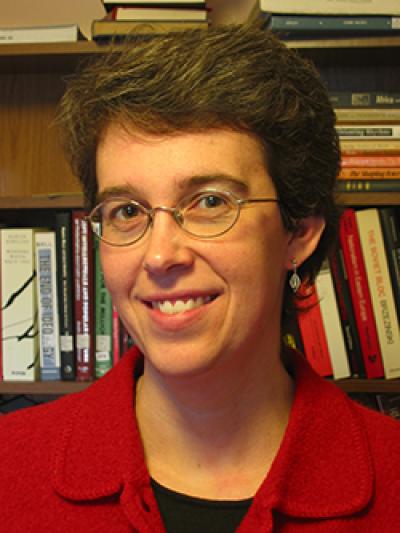American Musicians in Cold War Cultural Diplomacy

Principal Investigators: Danielle Fosler-Lussier, School of Music
During the Cold War, the U.S. State Department sent musicians to strategically important regions around the world to enhance the image of American culture. Hundreds of musicians performed a broad variety of styles including jazz, classical, folk, blues, country, musical theater, choral, and even avant-garde art music.
The musicians acted as cultural ambassadors, reaching thousands or even tens of thousands of listeners at each stop. They were asked not only to play at the highest professional levels, but also to meet local students and play with local musicians.
Despite the importance of the musicians' tours for the development of international cultural contact, no scholar has yet done a thorough analysis of the effects of the State Department’s tour program. Danielle Fosler-Lussier is attempting to do just that with a grant from the Mershon Center supporting the early stages of her research.
Fosler-Lussier is relying not only on material from the State Department and other key archives, but also on privately held materials and oral history research with musicians and diplomats. Musicians who toured for the government’s Cultural Presentations program considered it a special experience, and many kept diaries, itineraries, photographs, recordings, and memorabilia from their performances. Through private records and oral history, we learn about the small-scale but important effects of the tours.
One example of these differing accounts concerns the 1965 tour of Latin America by the University of Michigan Jazz Band. The State Department saw the tour as a vehicle for spreading American ideas and instilling respect for American culture among students.
But the way events played out on the ground was more complex. In Bolivia, the jazz band played on the university campus in La Paz because the student leaders wanted to use the performance to enhance their own reputations. The tour gave American Embassy officials an occasion to build relationships with these student leaders, as they worked to arrange accommodations, meals, and performance space for the musicians.
After the musicians left, embassy officials built on that connection by arranging for the Bolivian student leaders to visit the United States. The performances exposed thousands of Bolivian people to American music, but the tour was also a catalyst for further, and more explicitly political, exchanges between Bolivians and Americans.
Other tours had other effects. A performance of avant-garde compositions in Egypt by the Claremont String Quartet was meant to connect with elite intellectuals, and audience members felt honored to hear such difficult music. But many also worried they would not measure up to what they saw as a high international standard of listening expertise. In this way, the performance also fostered a sense of inferiority. Musical tours thus built complex worldwide social relationships.
Fosler-Lussier has published one article and submitted another for this project. She is also using research done with the support of the Mershon Center to seek a grant from the National Endowment for the Humanities to expand the project into a book.
Investigators
Filters: 2008-2009, Music
